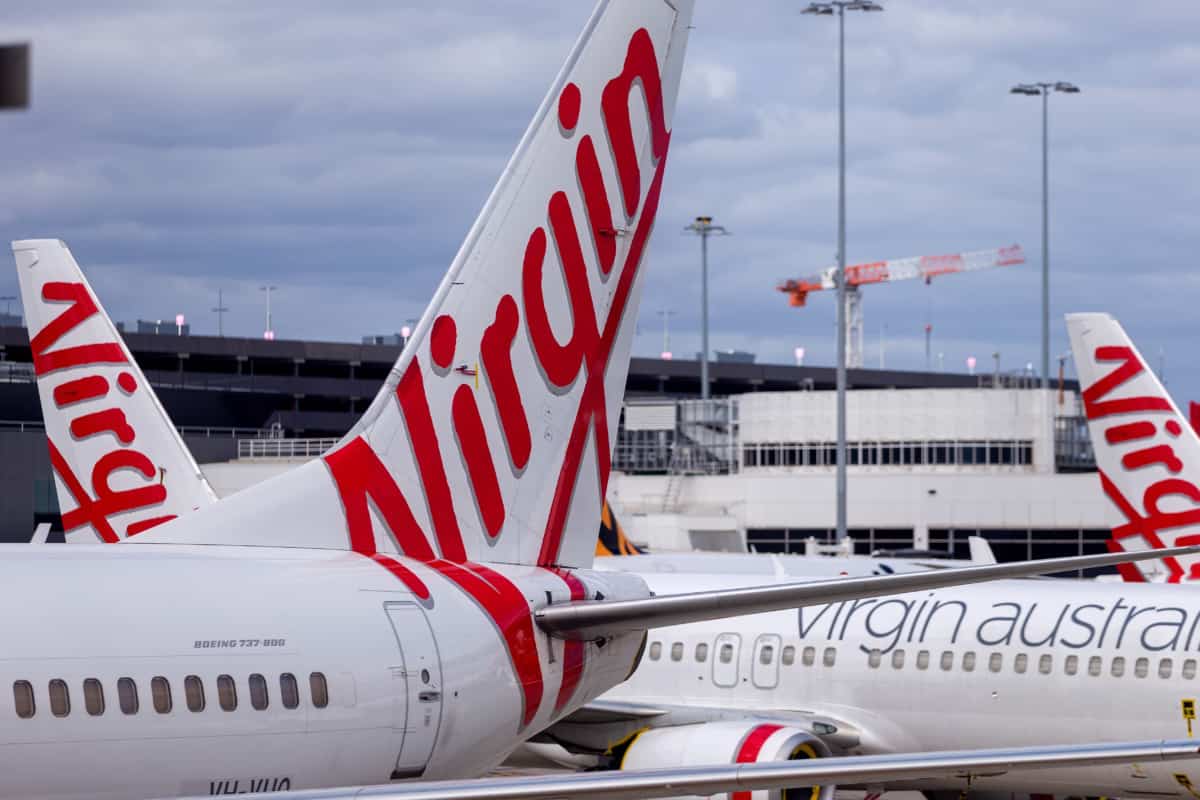Throwing money at the stock market is always a fraught endeavour. As one of the smartest (and most cutting) finance tweets of 2020 puts it, if you’re punting on the stock market right now, you’re either an idiot or a genius.
Though this is perhaps an exaggeration, the gist is clear: if you don’t know what you’re doing, you could get yourself into hot water trading this year.
That said, with many companies’ stocks now trading for pennies on the dollar, the temptation to fling a few shekels around (despite this being one of the common mistakes rookie investors are warned against), is understandably tempting.
The travel industry is on its knees, with many airlines – most notably Virgin Australia – doing it particularly tough. With experts predicting a return to normal levels of globetrotting by 2024, could Virgin Australia be a dark horse 2020 investment?
Online discussion forums show this is a question on many young professionals’ minds. One recent thread on Reddit‘s /r/ausstocks, for instance, posed the question: “Is it worth investing in Virgin Australia?”
“Currently, the share prices are very cheap [at] 0.055,” the author of the thread wrote in April.
“Would it be worth investing a little amount of money to see if it could climb up? My reasoning for this is because it could climb up because of the bailout… any tips whether this is wrong or dumb as I am quite new. Thanks!”
Of course, the situation has evolved since then. But the uncertainty around Virgin Australia’s future is far from over, with even Qantas, which has survived the devastation of the pandemic without having to go into voluntary administration, preparing for a dearth of international flights until July 2021.
One commenter beneath the thread offered the following thoughts: “As of August last year, Virgin has had 7 years of losses.”
“It is currently facing the worst aviation meltdown ever. It competes with a national icon that has loads more cash, a massive frequent flyer program, more routes and is profitable.”
“If you need to ask about taking a position in such a stock, you should not be taking a position in that stock. Definitely not a beginner’s stock.”
For good measure, the same user added: “There is no guarantee they will survive, or even turn a profit in future if they do. Their major shareholders are all foreign entities, mostly airlines who are all suffering the same disastrous trading conditions. They have propped up VAH and I’m not sure they want to, or have the capacity to do so under current conditions.”
Another commented wrote: “The number for the share price should not be used as a value for a stock. Look at the market cap and actually understand the value and compare it to the annual reports and your research.”
Besides showing the original poster’s ignorance of investing, the comments show the various plates up in the air for anyone thinking of putting money into Virgin Australia.
To take the conversation beyond anonymous internet commenters, DMARGE spoke to Luke Laretive, CEO of Seneca Financial Solutions.
Laretive echoed much the same warning: “Virgin – flat out punt on a bunch of moving parts, probably easier ways to make money I’d argue.”
While stock pick website The Motley Fool says “there is a possibility that analysts could revise their outlook for Virgin Australia to stable if the company executes on its operations strategy and improves its debt-to-EBITDA ratio,” the general consensus is “not [to] buy shares in Virgin Australia at the moment.”
“Instead,” The Motley Fool argues, “weakness in Virgin Australia’s share price could impact other companies in the sector [and] as a result, investors could see potential buying opportunities in other airliners such as Qantas Airways Limited (ASX: QAN) and Sydney Airport Holdings Pty Ltd (ASX: SYD).”
“However, given the volatility we have seen recently, the most prudent strategy would be to keep stocks in the travel industry on a watchlist and wait for price action to improve.”
